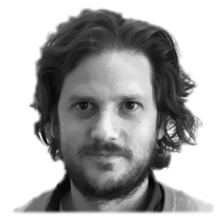Johan Duchêne, Ludwig Maximilian University, Germany
-
On 28 June 2024Amphi DEfalse false
-
11h30
From DARC Past to Bright ACKR1 Future: A Journey in Transgenic Mouse Models
From DARC Past to Bright ACKR1 Future: A Journey in Transgenic Mouse Models
Johan Duchêne, PhD, Associate Professor, Group Leader
Institute for Cardiovascular Prevention (IPEK)
University Hospital, Ludwig Maximilian University (LMU) of Munich
Abstract
Chemokines control immune cell migration and are key molecules in homeostasis and inflammation. In addition to conventional receptors, they can bind to atypical chemokine receptors (ACKRs) structurally similar to G-protein coupled receptors but unable to activate G-protein signalling and mediate chemotaxis. Instead, ACKRs regulate chemokine levels in tissues. This makes ACKRs crucial players in homeostasis and inflammatory diseases.
Most sub-Saharan Africans and 70% of African Americans carry a SNP in ACKR1 (previously known as Duffy-Antigen or DARC) gene, leading to an erythroid silent Duffy-negative phenotype. This SNP is notably associated with "ethnic neutropenia" in people of African ancestry. It remains however unclear whether and how this SNP may influence disease outcomes.
I will present the different mouse models that have been developed to study the role of ACKR1 and our newest mouse model that phenocopies features observed in Duffy-negative individuals. This mouse model provides a new experimental tool for studying the downstream effects of Duffy-negative SNP in homeostasis and diseases.
Biography
Johan Duchêne was trained as a molecular and cell biologist at the Metabolic and Cardiovascular Research Institute (I2MC) in Toulouse where he obtained his PhD in 2003. During his postdoctoral research at the William Harvey Research Institute (WHRI) - Queen Mary University of London (QMUL) (2004-2009), he specialized in the molecular biology of the innate immune system. He then served as a principal investigator at the Max Delbrück Center for Molecular Medicine (MDC) in Berlin (2009-2014) where he investigated the role of chemokines in atherosclerosis. In 2014, he relocated to Munich, joining the Institute for Cardiovascular Prevention (IPEK) at Ludwig Maximilian University (LMU) as a group leader. His current research interests lie on studying the chemokine system in homeostasis and inflammatory diseases, with a particular focus on the biology of atypical chemokine receptors in cardiovascular disease.






